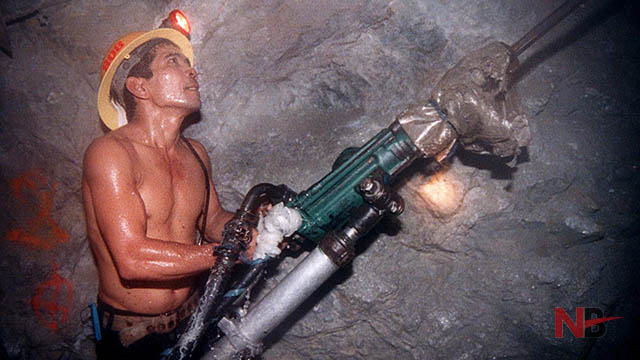SUMMARY
This is AI generated summarization, which may have errors. For context, always refer to the full article.

MANILA, Philippines – Does the mining industry benefit the 28 million poor Filipinos? Why are mining companies taxed less?
In oral arguments on the Mining Act on Tuesday, July 16, Supreme Court Senior Associate Justice Antonio Carpio said poor Filipinos remain hungry and lacking in basic resources, while only the rich benefit from the measly 2% excise tax that government receives from the extractive industry.
The High Court is holding oral arguments on the basis of petitions asking the justices to declare the Mining Act unconstitutional.
Carpio and other justices grilled government lawyer Magtanggol Castro on why mining companies pay only 2% excise tax while “they exploit our natural resources more.” Carpio noted that other industries, including cigar, cars and liquor, “pay higher taxes while they do not exploit natural resources.”
Carpio stressed that the government should not be blinded by the mining companies’ “promise to build houses, schools” and others in communities where they conduct mining activities.
Chief Justice Maria Lourdes Sereno castigated Castro for not knowing whether mining firms pay correct taxes.
Citing documents submitted by the Department of Environment and Natural Resources (DENR), Sereno noted that most mining companies do not even have an environmental work budget. The DENR document showed only Sagittarius Mines Inc., which is set to operate the Tampakan mine in South Cotabato, has an environmental work budget, which is mandated by law.
Castro, who is from the Office of the Solicitor General (OSG), insisted that only Congress can determine the amount of taxes that mining companies need to pay.
The Aquino government said the rationalization of the government’s share in mining revenues is among its priority bills in Congress.
Castro said that if certain provisions of the Mining Act are stricken down as unconstitutional, the OSG believes mining companies may just pull out.
Mining investments
In a July 16 statement, the Chamber of Mines of the Philippines (COMP) insisted that mining investments “support job creation, inclusive growth and poverty alleviation, at the same time protect the environment and uphold human rights.”
It added that “about P173 billion (US$4 billion) in mining investments have been poured into the country since 2004 following the Supreme Court’s landmark ruling in La Bugal-B’laan upholding the constitutionality of the Mining Act or Republic Act 7942, making the industry a significant contributor to national development.”
The Supreme Court has allowed the COMP to intervene in the petitions that former Akbayan Rep. Risa Hontiveros, former Bayan Muna Rep Teddy Casiño, and others filed.
Former Chief Justice Reynato Puno and former Associate Justice Vicente Mendoza are representing COMP. – Rappler.com
Add a comment
How does this make you feel?
There are no comments yet. Add your comment to start the conversation.